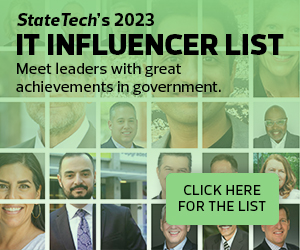STATETECH: We often hear that citizens don’t care where the services come from; they just see one government and they want it to deliver their services.
COLLINS: The CIO drives that conversation in partnership with agency leaders. That’s why I love that most CIOs have moved into the cabinet level. They really need the support of that top executive, whether it’s a county executive, a mayor or a governor. Each agency is laser-focused on its mission. But the constituent sees it all as an enterprise. And the CIO is the one to lead that conversation for consistency and for more intelligent services. Government acts like it doesn’t know constituents from an online perspective, when it has all this meaningful information to tailor services for them.
STATETECH: How can Microsoft help state and local government agencies with these problems?
COLLINS: That’s a big part of what we do here in Microsoft Public Sector. People generally think of the Microsoft brand as email, Office applications, databases and operating systems. Those things are accurate, but we are so much more. We strive to be a reliable partner to help governments deal with the problems they face such as economic and workforce development, substance abuse, mental health, justice and public safety issues across the country. We still learn about real challenges in social and family services. Every administration wants to make people’s lives and businesses better. These issues all interrelate, and there is data throughout the system to provide insights into solutions. Those are the things that governments are grappling with. We love it when we get calls to help.
LEARN MORE: Here are some important security considerations for embracing AI.
We collaborated with an agency that had difficulties with car theft. They would file a report when they found a stolen car. When an officer had the time, they would mark the car as recovered in a database. But until then, other officers were still searching for that car because the database was not updated. And so, the owner would be stopped by the police for suspected of car theft, and they would have to prove their ownership. We helped them develop an app where they can update the database in real time when a car is recovered. Now, no more owners are suspected of stealing their own cars. This may seem like a minor issue, but it was a serious problem.
The good news is that AI has opened up so many new conversations with governments to help with their resource constraints as well as customer demand.














